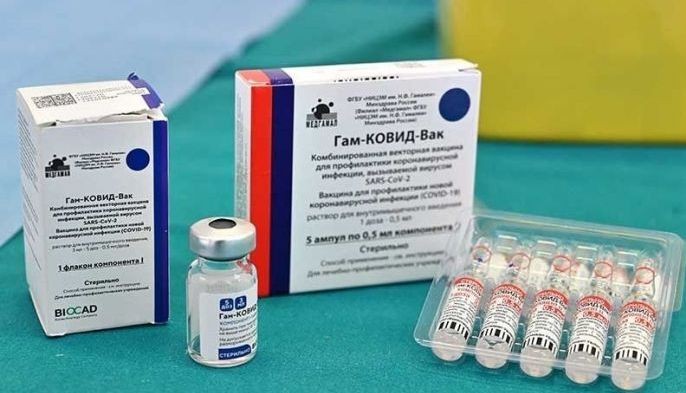MANILA, Philippines — Logistical challenges again hampered the delivery of the first 15,000 doses of the Russian-made COVID-19 vaccine Sputnik V, which were supposed to arrive in the Philippines Wednesday evening.
Malacañang confirmed Wednesday that logistical challenges, specifically the lack of direct flights from Russia and the difficulty of keeping the shots in sub-zero temperatures, has delayed the arrival of the jabs.
Related Stories
The government now expects the vaccines to arrive in May instead, but assured that vaccine czar Carlito Galvez has “taken steps to address these challenges.”
This is the second time that the arrival of the vaccine doses has been pushed back. The shots were originally scheduled to land on April 25, but its delivery was pushed back to April 28, before Malacañang confirmed that this also would not push through.
ABS-CBN News first reported that the scheduled arrival of the first doses of Sputnik V was cancelled, citing airline sources who told them that the shots were not loaded on the Qatar Air flight scheduled to arrive 11 p.m. on Wednesday.
Russia approved the Gamaleya Institute’s Sputnik V vaccine in August 2020, becoming the first country to clear a jab for COVID-19.
In March, the Philippines' Food and Drug Administration granted emergency use authorization for Sputnik V, paving the way for the shots to be administered once they arrive.
The Department of Health, however, said that not all local governments will receive the vaccine due to stringent handling and storage requirements, among them the need to be stored at temperatures not exceeding -18 degrees Celsius.
Sputnik V is taken in two doses, and has a 91.6% efficacy rate. Results from a peer-reviewed late-stage trial in The Lancet medical journal showed too that it is completely protective against severe forms of COVID-19.
Galvez has said that most of the Philippines’ vaccine supply would consist of the China-made Coronavac, with 4.5 million doses, and Sputnik V, with 4 million doses.
He also said that the country is negotiating for 20 million doses of the Russian-made jab.
Government data shows that since the start of the vaccination drive in March, 237,992 people have been fully vaccinated in the Philippines, while 1.5 million have received their first vaccine dose.
While the government touts that the Philippines is the third country in Southeast Asia with the most number of doses administered, it neglects to say that only around 1% of the population have been given a vaccine and has been administering shots at a snail’s pace owing partly to the scarce supply of jabs.


